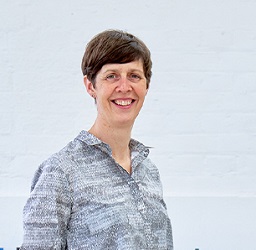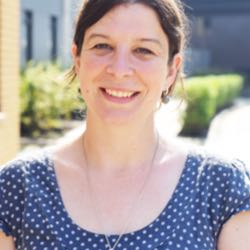Advance HE's Senior Women’s Leadership Development Programme (SWLDP) is a bespoke programme designed specifically for women in senior positions in higher education to enhance their technical knowledge and explore individual leadership styles and skills.
We spoke to two recent participants about their experience of SWLDP and the benefits of the programme.
Kate Farley
Kate is Associate Professor and Course Leader for BA (Hons) Fashion and BA (Hons) Textile Design, teaching across both courses at Norwich University of the Arts.

Dr Kate Strudwick
Kate is the Dean of Lincoln Academy of Learning and Teaching at the University of Lincoln.

What have you appreciated about Advance HE’s Senior Women’s Leadership Development Programme (SWLDP)?
Kate Farley: “The course was so full of information that was delivered in a comprehensive manner, taking into account the wide range of experiences, roles and institutions the participants were from. The sessions were designed well, to include participation, despite being delivered entirely online, and I found everyone open and sharing.”
Dr Strudwick: “I’ve really appreciated the organisation, principles and safe space provided by the SWLDP. The content and focus was always well considered, supportive, and more importantly, had both currency and relevance for those of us in senior leadership roles.”
What was the main benefit of the programme for you?
Kate Farley: For me, being talked through university governance, finance and leadership strategies were the most insightful sessions, helping me to understand different perspective that the decisions are being made from, higher up the university. A lasting benefit from the course has been a support network that has formed from our Action Research group. We continue to meet every few months online and continue with the Action Learning Set, slightly adjusted to suit us, and although we are in different positions, have differing ambitions and work in very different roles, this external, unwavering support and safe space to question ourselves has been an amazing legacy of the course. We really have invested time and empathy in each other.
Dr Strudwick: The main benefit was the positive impact it had on my self-esteem and confidence. As someone who had recently started a new leadership role in HE, the supportive network developed between delegates over the six sessions was immeasurable.
How has the programme helped you navigate the challenges of being a woman leader in higher education?
Kate Farley: It’s made me more aware of my position and how I can make positive contributions, while having a conscious awareness of gender bias and expectations, both personally and with colleagues.
Dr Strudwick: There was clear breadth, depth and detail provided through the content for the six day delivery. These all combined to ‘take you by the hand and walk you through’ some of the core challenges facing women senior leaders. It was always up to date on key issues relating to senior leadership, tackling governance or financial questions, whilst also focusing upon wider cultural aspects of senior leadership.
How did the programme impact your confidence and leadership visibility?
Kate Farley: I think it has given me the confidence to trust my own instincts, and that leadership can take many forms. This has enabled me to understand my contribution as a leader through a new lens.
Dr Strudwick: The SWLDP had a measurable positive impact on levels of confidence and leadership visibility, enabling delegates to have greater presence in their institutions. This was demonstrated in my case through a successful interview conducted during the programme and the extent to which I subconsciously applied principles and applications learnt through the programme.
In your opinion, what do delegates need to invest in the programme to make it effective for them and their cohort?
Kate Farley: To make the most of the course you need to buy in to listening to others, and be prepared to honestly question your own pre-sets. You need to be prepared to invest in your vulnerabilities within your professional life. Of course I continue the cliché of imposter syndrome on some days, but my peers on the course, particularly those I’m still in touch with have all gained an understanding of themselves by being in the context of other women discussing leadership, and gaining personal and professional acceptance/validation as a result.
Dr Strudwick: The key to making it effective was the investment of time and effort. Initially, the hardest part was justifying blocking out and ring-fencing of full days for the programme. Despite this initially being a challenge, it was essential for the required level of participation required as a delegate for the SWLDP. The commitment of time was integral to the programme, because it allowed delegates to develop the correct mindset, which enabled them as senior leaders the time needed to reflect and consider their practice.”
Kate Farley leads the strategic delivery of both Fashion and Textile Design disciplines, managing the staff team at Norwich University of the Arts across the teaching and learning experience. She leads on course development and academic processes including recruitment, assessment and progression while working with other professional services at the university and beyond.
Dr Kate Strudwick is the Dean of Lincoln Academy of Learning and Teaching at the University of Lincoln (LALT) providing leadership on teaching and learning, alongside development, embedding and enhancing student engagement though Student as Producer.
Find out more about the Senior Women’s Leadership Development Programme.